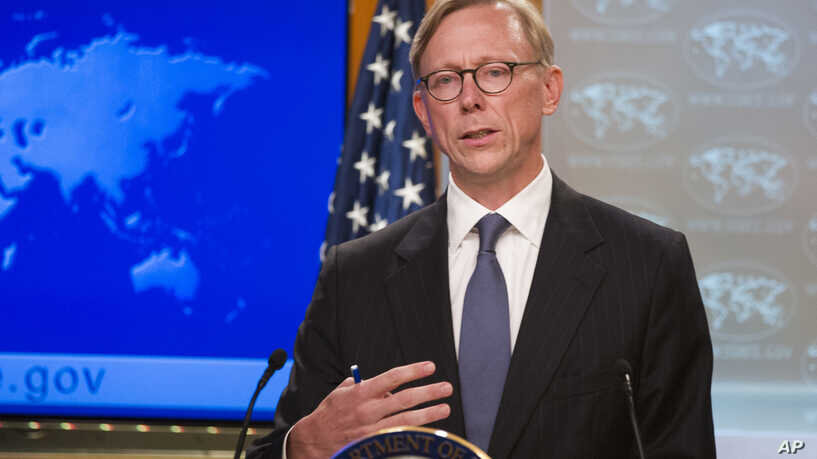Hook claims Iran sanctions produced ‘excellent results’

TEHRAN — The United States is working to renew the arms embargo on Iran, claims U.S. special representative for Iran Brian Hook, adding that sanctions on the Islamic Republic had produced “excellent results”.
“The sanctions on Tehran have led to excellent results and we have deprived the Iranian regime of billions of dollars thanks to the sanctions,” Hook said, speaking to Brett D. Schaefer of the Heritage Foundation during an online session.
Two years after the United States withdrew from the Iran nuclear deal, the Trump administration is looking to extend a UN ban on conventional arms sales to and from Iran, a strategy designed to kill the deal for good.
In a May 9 statement marking the second anniversary of the Trump administration’s withdrawal from the Iran nuclear deal, U.S. Secretary of State Mike Pompeo pledged to “exercise all diplomatic options” to extend the UN ban on conventional arms sales to and from Iran beyond its current expiry date on October 18.
Hook also claimed that Iran was at the forefront of sponsoring terrorism and added that lifting the arms embargo on Tehran would provide the Islamic Republic “an opportunity to destabilize the region.”
“Iran is an isolated country and does not enjoy international support,” he claimed, adding that the U.S. dispute with other countries over policy on Iran was “tactical and not substantive.”
“Russia and China want to sell arms to Iran, and the embargo does not suit them,” he claimed.
Hook further said that “not arming Iran contributes to bringing stability to the Middle East.”
He said U.S. President Donald Trump had been “very strong against Iran,” adding that “the Iranian regime is languishing under great pressure and the door is open to diplomacy ... President Trump will continue to pressure and Iran must respond.”
Meanwhile, Tehran has strongly rejected the U.S. president’s calls for talks under pressure, arguing that it was the U.S., not Iran and other parties to the nuclear pact, that left the negotiating table.
Trump walked away from the nuclear agreement, officially called the JCPOA, on May 8, 2018 and introduced a “maximum pressure” policy against Iran in order to force Tehran to negotiate a new deal.
On May 8, 2019, Iran started to remove curbs on its nuclear program. It happened exactly one year after the U.S. abandoned the nuclear deal and imposed the harshest sanctions in history against Iran in line with the Trump administration’s “maximum pressure” campaign on Tehran.
From the very beginning that Iran started to remove ban on its nuclear program, officials in Tehran announced if the European Union, especially its big trio (Germany, France, and Britain which are signatory the deal), takes steps to compensate the sanctions' effect it will immediately reverse its decision.
MH/PA
